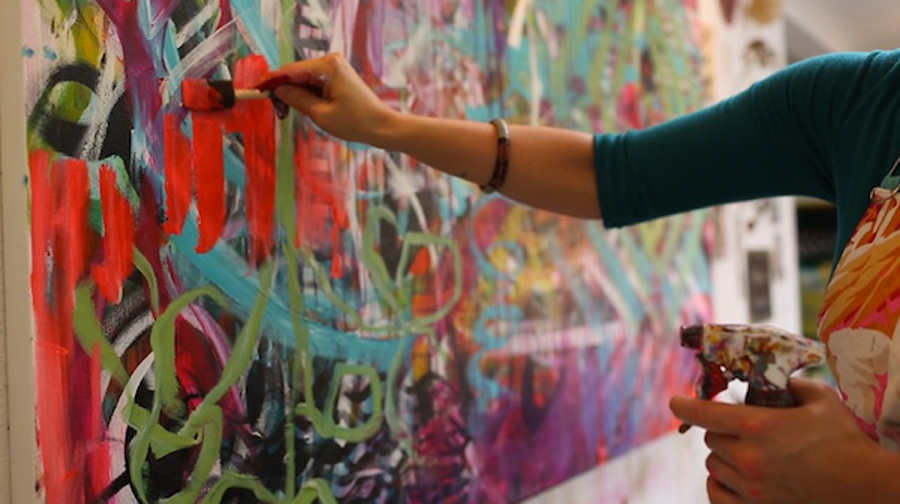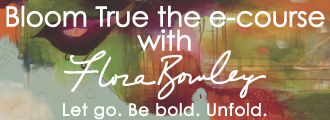Bloom True with the extraordinary Flora Bowley
by: Jennifer Richardson on

I hadn't picked up a paint brush many times since school but whenever I
did the panic would start before the first layer of paint. I would stare
at the canvas and think.. "I really hope this is going to work out".
Pressure!
Blocked by fear. Yuk, who wants that?
Does this resonate with you?
Well if it does and you are not living in Portland OR. USA to be able to go to 'live' workshops with Flora Bowley then you owe it to yourself to experience Bloom True e-course.
I have been lucky enough to have been with Flora in a 'live' workshop and I can tell you that looking around at the faces of those that were doing the course was 'heart opening'. She is delightful and we were all totally absorbed and having an absolute ball feeling the joy of letting go and being brave with paint.
Unfortunately I didn't have the time to stay for the whole course with Flora because of prior arranged work commitments but I signed up for her e-course when I saw just how inspirational she is.
I was far from disappointed in it being 'online' instead of 'live'. It is 'life changing' it does not stop at just painting techniques it is an inspiring lifestyle course. So much so I am signed up for next one too!
“It has taught me that there is no right or wrong way to paint. It has inspired me so much to be brave and just go for it and find what feels good to me. It has helped me to let go of my fear of a blank canvas.”
The next e-course starts on the 26th January, 2015 will you join me?

